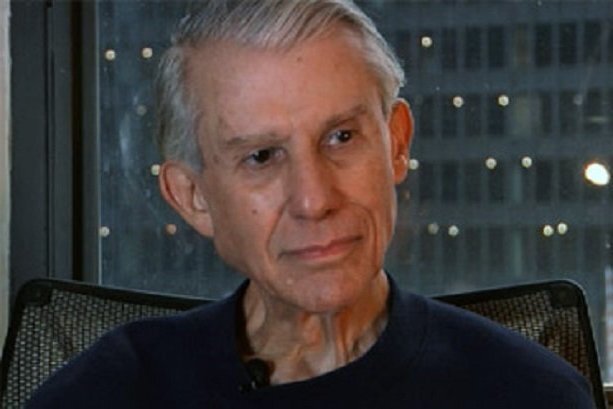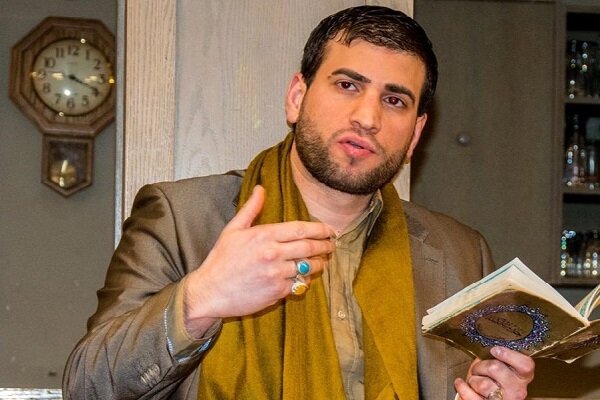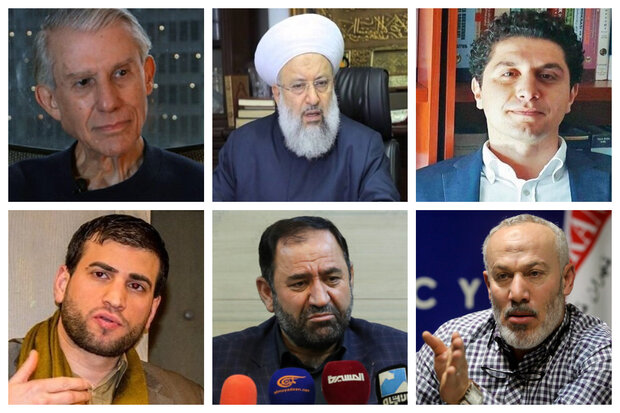US terrorists assassinated General Soleimani, the commander of the Quds Force of the Islamic Revolution Guards Corps, along with Abu Mahdi al-Muhandis, deputy head of Iraq’s Hashd al-Sha’abi, and their companions by targeting their vehicles outside Baghdad International Airport on January 3, 2020.
The act of terror was carried out under the direction of US President Donald Trump, with the Pentagon taking responsibility for the strike.
General Soleimani is viewed by the world's freedom-seeking people as the key figure in defeating ISIL, the world’s most notorious terrorist group, in the Middle East battles.
A year after the terrorist attack, we have reached out to prominent political analysts and scholars to shed light on the matter. The following are the text of the interviews with them:
.Key figure in fight against US-backed terrorists

Stephen Lendman, a prominent American analyst, says the elimination of Gen. Soleimani was carried out by the US because he was a key figure in the fight against US-backed terrorists and defusing US regional plots to reshape the map of the region.
“General Soleimani was key in the fight against regional terrorism the US, NATO and Israel support. That’s why he was targeted for elimination,” he added.
The American analyst said, “The US operates exclusively by its own rules — consistently and repeatedly breaching international, constitutional and its own statute laws. It is guilty domestically against its own people, along with wars by hot and means abroad.”
Lendman cited a statement by Iraq’s Popular Mobilization Units (PMU) on January 3, 2020, that read: “On this day, deputy head of (Iraq’s PMU) Hashed, Abu Mahdi al-Muhandis, and head of (Iran’s) Quds Force, (General) Qasem Soleimani, were killed in a US strike that targeted their car on the Baghdad International Airport road… The American and Israeli enemy is responsible for killing the mujahideen Abu Mahdi al-Muhandis and Qassem Soleimani.”
The analyst said, “They were killed for being redoubtable freedom fighters against US-supported ISIL in Iraq — not for any threat to US security. What happened was cold-blooded murder — far from the first time US elements killed targeted individuals.”
“The action and much more like it reflects how the scourge of US imperialism operates — a diabolical agenda against world peace, equity, justice and the rule of law,” he added.
Lendman said, “No one is able to change US Middle East policy that’s all about redrawing its map, weakening regional countries, plundering their resources, and sharing the spoils with imperial partners.”
“As long as it’s oil-rich, US military interventionism is there to stay.”
.
Soleimani entered Gaza to repel Israeli attacks, blockade

Firas Al Najim, a Canada-based human rights activist, also pointed to the role of Martyred Lieutenant General Ghasem Soleimani in the fight against terrorism in West Asia, and his support for Palestinian resistance.
Elaborating on the US’ terrorist move that was a clear breach of the international law, al-Najm said, “The US regime and specifically the Trump administration breached international law without any remorse or regret by killing General Ghasem Soleimani who was invited to Iraq through legal Iraqi channels.”
“Governments of Iraq and Iran had mutual security agreements and this was fully violated by the US attack targeting the agreement and also killing one of the most important Iraqi generals in the Popular Mobilization Units (PMU) Abu Mahdi al-Muhandis who had led the battle against the terrorist organization ISIL, aka Daesh.,”
Referring to Soleimani's role in fighting against US and Saudi backed terrorism, he said, “Soleimani was a very successful commander and defender of the holy Middle Eastern region. He was in the forefront in the 2006 Lebanon vs Zionist occupation battle that had a great resolution of having all the Lebanese prisoners of war released and the Israeli illegitimate regime was never humiliated to this high of a level before in its history.”
He noted, “Soleimani also was at the forefront in securing Syria from the global terrorist organizations that were backed by the American- Saudi evil regimes. He also assisted in securing the holy shrine of the Prophet Muhammad’s granddaughter Lady Zainab in the capital of Syria Damascus. Soleimani concluded his life in the grand battle against the ISIL terrorists that had gained strong grounds in Iraq and massacred many Iraqis. Soleimani was the main engineer in liberating and securing Iraq and that includes the northern mainly populated Kurdish areas and this has also been stated by Massoud Barzani.”
The human rights activist said the American-engineered and -backed terrorism was defeated by Soleimani and his companions and they felt they had reached a point of despair that they had to kill him in a cowardly way and this also exposed their nature.
“Soleimani broke the evil Sykes-Picot Agreement and redraw the maps that opened the doors of all resistance to join hands in from Lebanon to Palestine to Syria to Iraq and the list goes on. The united resistance that will one day enter and liberate holy occupied Palestine as he predicted in many of his sermons.”
He pointed to Soleimani’s role in the fight against terrorists in Palestine, saying he “entered Gaza several times and helped to build the underground tunnels that assisted the resistance to respond strongly to the Israeli aggressions.”
“This was confirmed by the Hamas representative in Lebanon Ahmed Abdul Hadi and it was sealed when the leader of Hamas Ismail Haniyeh, the democratically elected government of Gaza, flew to Tehran after Soleimani’s martyrdom and during the sermon said loudly and boldly that Ghasem Soleimani is the martyr of Al Quds meaning the martyr of Jerusalem.”
.
Gen. Soleimani assassination clear violation of intl. law

Onur Sinan Guzaltan, a Turkish lawyer and analyst, says the assassination of General Soleimani was a violation of international law, the aim of which was to weaken the anti-American and anti-Zionist activities in the region.
In his talk with Mehr News Agency, Guzaltan addressed the issue from the perspective of the principles and rules of international law.
He referred to the sanctions imposed on Turkey and Iran, as well as the civil war in Syria and operations against anti-Israel groups, saying such moves are in line with establishing a terrorist state in northern Iraq and Syria. “The US goal is to maintain its hegemony in West Asia.”
He said it is clear that “all countries, organizations and individuals in the region who oppose the US plots or fight the US-backed terrorist groups are targeted by the Washington government.”
He said the “assassination of General Soleimani was also aimed at weakening Iran as one of the countries that opposes the US plans.”
Guzaltan said while the United States targets countries with terror, sabotage, and sanctions, terrorist groups such as the PKK and ISIL continue to provoke conflict in the region.
Expounding on the legal perspectives of the criminal act, he said, “The US action against General Soleimani is undoubtedly a terrorist act and has no place in international law.”
“Ignorance of international law, crimes against humanity or war crimes are examples of thousands of US-Israeli actions.”
He added, “Sanctions against Iran, the occupation of Palestine, and sanctions against Turkey are the biggest examples of US and Israeli non-compliance with the law.”
“The way to overcome this lawlessness is a joint struggle against US imperialism in West Asia.”
.
Soleimani cast unwavering support for Palestinian resistance

Sheikh Maher Hamoud, head of the International Union of Resistance Scholars, also referred to General Soleimani's unwavering support for the Palestinian resistance and said he had thwarted US plots to reshape West Asia’s map.
In his interview with Mehr News Agency, the senior cleric said while the majority of public opinion in the region and the world considers General Soleimani as a pioneer in the fight against ISIL and the destruction of these terrorist organizations in Iraq, “his selfless actions in support of the Palestinian groups and Lebanese resistance forces, and the Axis of Resistance in West Asia should not be forgotten.”
He said that General Soleimani managed to prevent the implementation of the US plots in Syria and Iraq and the realization of Washington's goals of creating unrest in these countries.
“He also played an important role in the 33-day war waged by the Zionist regime against the Lebanese resistance in the south of the country.”
He said, “The result of General Soleimani's efforts was the thwarting of many of the American conspiracies against the region, especially the new Middle East plan.”
.
Gen. Soleimani promoted Intifada to amred resistance

The representative of the Palestinian Islamic Jihad movement, Naser Abu Sharif, pointed to General Soleimani’s considerable role in the Palestinian’s fight against the occupiers, saying that the martyred general had promoted the armed resistance in the Gaza Strip.
“Undoubtedly, the Islamic Republic of Iran played an important role in supporting the Palestinian cause after the victory of the Islamic Revolution. It was Iran's support that enabled Palestinian resistance groups to stand up to the Zionist regime,” Abu Sharif said.
He noted that "Since Haj Ghasem Soleimani was appointed as the commander of the Quds Force of the Islamic Revolutionary Guard Corps, the nature of the Islamic Republic of Iran's support for the Palestinian resistance has also changed.”
He said General Soleimani had formed many Islamic movements to stand up and confront the Zionist regime. “He made supporting Islamic and resistance movements one of his top priorities.”
Referring to the evolution of the Palestinian’s fight against the occupiers, Abu Sharif said, “Since 2005, after the First Intifada in the Occupied Territories, the struggle in Palestine has escalated and the struggle has turned from stone to arms.”
“Therefore, it was in 2005 that the process of strengthening the resistance militarily began,” he said, adding, “Meanwhile, Haj Ghasem Soleimani and the Quds Force of the Islamic Revolutionary Guard Corps played a prominent role in promoting the armed resistance in the Gaza Strip.”
He noted that “Soleimani also played a significant role in integrating the resistance movements in the occupied territories.”
In Iraq, Syria and Yemen, we also see that the resistance movements have all gained strength and are now resisting the Western projects as well as the projects of the Zionist regime,” he said.
“This is undeniable,” he stressed.
The Palestinian figure said, “The relations between the leaders of Islamic Jihad and General Soleimani were not within the framework of a series of military relations, but what brought Islamic Jihad and him closer was the insight of both sides towards the Islamic project; a project that should line up against the US-Western project and Zionism in the region.”
“In fact, the idea of Islamic unity is the only idea that can be used to summarize the type and nature of relations between resistance groups and General Soleimani.”
He said, “We generally had friendly and fraternal relations with each other, and in the meantime, there were no personal or partisan interests.”
.
Soleimani foiled US plans to redraw N Africa, WA

Anthony Cartalucci, a Bangkok- based geopolitical researcher, believes that figures like Soleimani - and in a wider sense - the efforts by the Iranian, Syrian, Iraqi, and Russia have already foiled the US plans to redraw North Africa and West Asia (Middle East).
Cartalucci told Mehr News that “the US murdered Lt. General Soleimani in the middle of its illegal occupation of Iraq, without justification, outside every conceivable measure of international law, and in direct violation of not only US and international laws - but in violation of Iraq's laws and without Iraq's consent.”
“Virtually every aspect of the targeted murder/assassination was illegal and in every conceivable way,” he added.
The geopolitical researcher pointed to Washington's track record of carrying out crimes internationally - from assassinations to full-scale invasions, saying that “this sort of crime has been normalized and unfortunately little has or will be done about it - especially in the still very ineffective, dysfunctional United Nations.”
He elaborated on Soleimani's role in fighting against US and Saudi backed terrorism, saying, “It was clear that Soleimani was key to fighting ISIL, Al Qaeda's various affiliates not only in Syria but also in Iraq and beyond. It was clear that Soleimani - and in a wider sense - Iran was key to fighting the self-proclaimed terrorist group the "ISIL" and Al Qaeda's various affiliates not only in Syria alongside Russian and Syrian forces - but also in Iraq and beyond.”
“And while the US claims it is also fighting these groups it is clear that their growing confrontation with Syria, Iraq, Iran, and Russia is owed to this latter coalition's efforts to eliminate terrorist organizations the US has used for years as proxies across the region,” Cartalucci added.
He described the assassination as “an ugly act” which was “ultimately made in vain - since Iran's efforts against these terrorist organizations have continued and will continue.”
“Soleimani wasn't just a skilled leader but he was part of an effective institution that has continued his work since the US assassination.”
.
Soleimani sought to bring peace, security to region

Ali Fahim, an Iraqi political analyst, in an interview with Mehr News, hailed General Soleimani's role in defeating ISIL terrorists and thwarting conspiracies of the US and Saudi Arabia in West Asia, saying that Soleimani sought to bring peace and security to the region.
“The role of General Soleimani's military planning as well as his organized strategy and cleverness in defeating ISIL and declaring victory against these terrorist groups is undeniable.”
As General Soleimani sought to bring peace and security to the region and to strengthen the unity of the Iraqi Shias and political groups, the US considered him as a danger, Fahim said and added that, in this regard, General Soleimani’s measures were to the detriments of the interests of the US and Zionist Regime.
In response to a question over the role of General Soleimani in thwarting the US and Saudi conspiracies in the region aimed at geopolitical change, he said that Saudi Arabia, supported by the US and the UK, had many ambitious and colonial conspiracies in the region, especially for Yemen.
However, General Soleimani stood against such devil plans and thwarted conspiracies in the region, he added.
.
Soleimani defused three US plots in region

Hossein Akbari, the head of the World Assembly of Islamic Awakening Studies Center, said General Soleimani had defused three US plots that could affect the entire world.
“The Americans pursued at least three major projects in the region, each of which could have far-reaching implications for the world and impact on the entire world. But Martyr Soleimani thwarted their plots,” he said.
Akbari added, “The first plan of the Americans was the plan of the ‘Great Middle East’ in which they wanted to occupy the Islamic world and force the whole Islamic world to give up their values. They thought that they would achieve their goal by occupying Iraq, but their plan in Iraq failed and was thwarted.”
“The second plan of the Americans was the ‘New Middle East’ plan in which they wanted to divide the countries of the Islamic world into 200 small units and deprive them of their national power to force the people of these countries to follow them. They also started implementing this plan from Lebanon, and according to them, the beginning of the war in Lebanon was a prelude to the ‘New Middle East’ plan.”
He went on to say, “ISIL issue was the third plan of the Americans. By bringing ISIL to the Middle East, they wanted to create a full-fledged, long-lasting war in the Islamic world for at least 50 years, as well as chaos among the Islamic countries. It can be clearly said that world security owes much to Gen. Soleimani in the ISIL issue.”
“If any of these three plans were implemented, it could affect the equations of the whole world,” he stressed.
When asked about the hard revenge, Akbari said, “As Leader of the Islamic Revolutions said the attack on US airbase of Ain al-Assad was only a slap in the face of Americans and the issue of hard revenge is still in place and will be taken in due course.”
“Our revenge will not be just militarily, but it will be in all dimensions, especially software,” he noted.
“The idea in the Resistance is not to kill, inflict damage and to use military force. Resistance, as its name implies, means defense rather than attack.”
MNA

























Your Comment